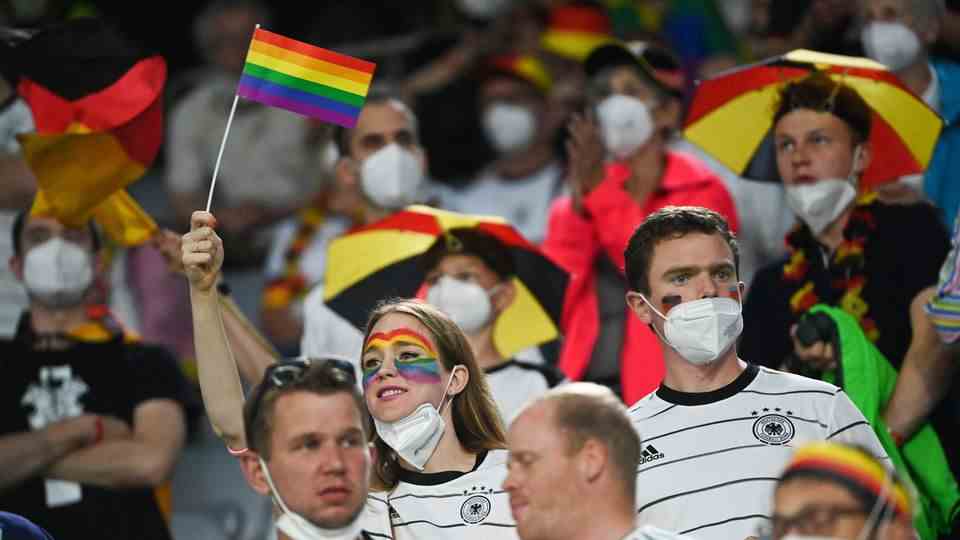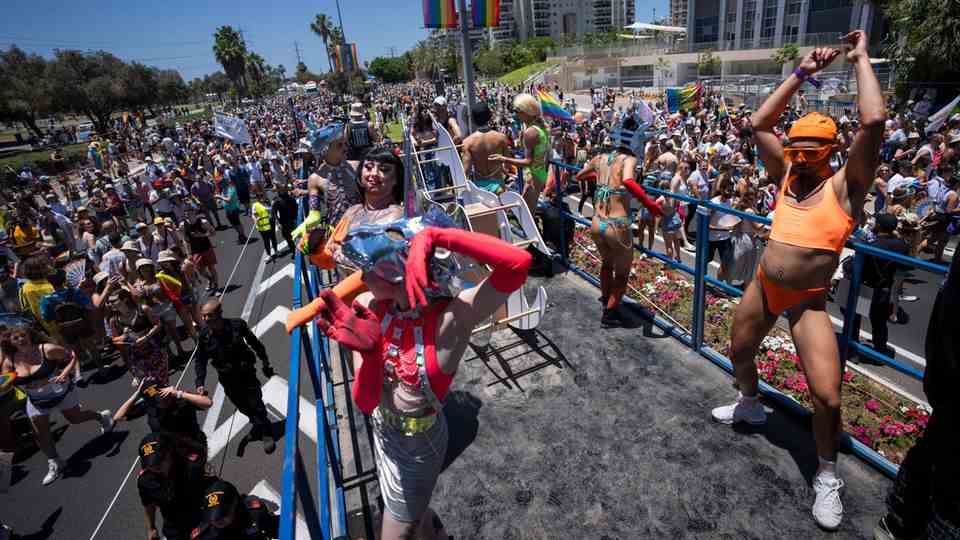Booking.com introduced the “Travel Proud” badge last year. 10,000 accommodations are now certified. The badge is intended to signal to LGBTQ+ travelers that they can feel comfortable without hesitation.
The suitcase in rainbow colors is intended to send a clear signal to the LGBTQ+ community: Nobody has to pretend here. A study commissioned by Booking.com last year found that 45 percent of LGBTQ+ travelers have had an uncomfortable or unfriendly experience at a property. 39 percent of the German LGBTQ+ community reported that they had already been discriminated against in some form while on vacation.
Booking.com wants to raise awareness about how to deal with LGBTQ+ travelers
The “Proud Hospitality Program”, which the travel platform then launched, is intended to sensitize staff in the travel industry to dealing with the LGBTQ+ community. According to Booking.com, the “Tavel Proud” badge, which the accommodations receive after training, is “a commitment to offer every guest warm hospitality”. Marketing boss Arjan Dijk reports in the stern interview about the problems that LGBTQ+ holidaymakers have to struggle with when traveling and explains what is behind the rainbow badge.
What unpleasant or discriminatory experiences have you had to make while travelling?
I have to say that I haven’t had any extremely negative experiences as a gay cis man. But there were sometimes uncomfortable situations. For example when I came with my partner and then we got twin beds even though we booked a king bed. There is usually no bad intention behind this, but you usually do not dare to clear up the error. When I go out to eat with my partner, it’s often the case that heterosexual couples get the nice tables on the terrace and we’re more likely to be seated in the back of the restaurant. But it is interesting that you do not want to experience the opposite either. For example, if you’re a woman sharing a room with a male co-worker, you certainly don’t want to be labeled as a couple and have to sleep in the same bed.
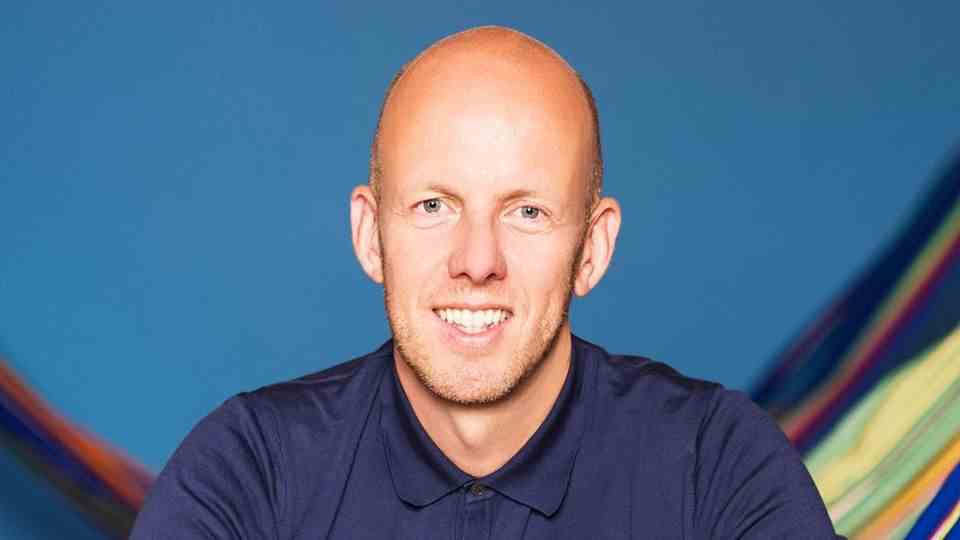
Booking marketing boss Arjan Dijk has already had unpleasant experiences when traveling. Most situations were associated with an uncomfortable feeling.
© Booking.com
Who had the idea for the “Travel Proud” certificate?
The impulse came from our employees. From their reports, the question that arose was how we can make travel easier for the LGBTQ+ community. From this the “Travel Proud” project was born. We wanted to take it seriously from the start and commissioned research to understand the issues the LGBTQ+ community is struggling with when it comes to travel.
What were the results of the studies?
We conducted the original study in eight countries and found that many LGBTQ+ people have concerns about travel. They are often not sure how to behave. They fear that they will be judged, dismissed, or ignored—and these are the most innocuous worries. But it’s not all bad. The LGBTQ+ community mostly reports positive experiences.
What message is the Travel Proud badge intended to convey to the LGBTQ+ community?
We want to help our shelters become more inclusive. Many of the problems just mentioned do not arise from malice, but from ignorance or a lack of awareness. It’s about certain subtleties in behavior and use of language. Anyone who goes on holiday wants to have a good time and not have to worry. “Travel Proud” is there so that travelers know in advance that they can feel comfortable there, a kind of security. The advantage for the accommodation is that it gives them an extra distinction and shows that they are open to LGBTQ+ travellers.
What must properties do to earn the Travel Proud badge?
You have to register and complete extensive training. To do this, we’ve partnered with inclusion experts so we can deliver quality training to properties around the world. It shouldn’t just be 20 minutes on the PC that anyone can click through, but also not a mass event where thousands of employees are taught at the same time. The training is done in small groups, there are interactive elements and at the end you have to pass a test. It was also important to us that the participants could ask questions. Questions they might not otherwise have dared to ask.
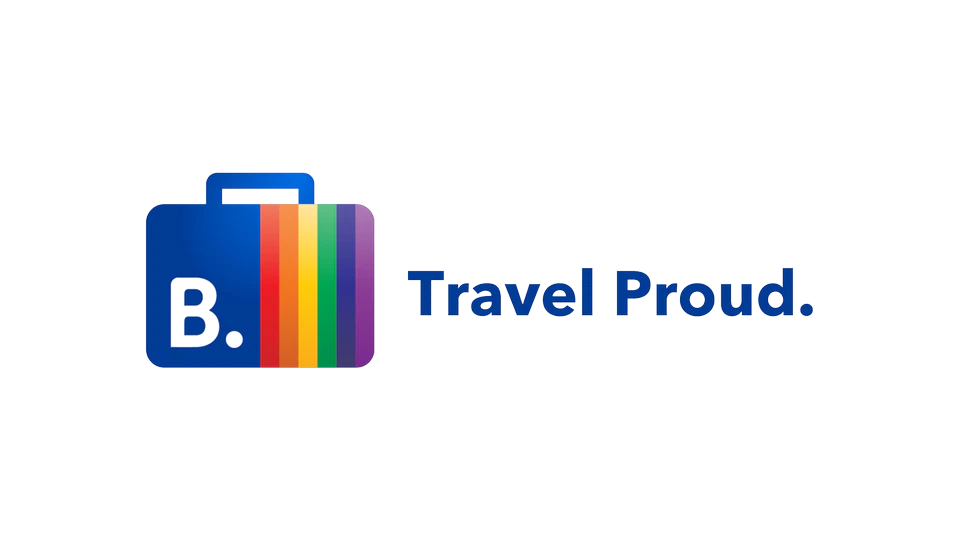
The “Travel Proud” badge
© Booking.com
What exactly do the employees learn in the training? How should the training change the way we deal with LGBTQ+ travelers?
The aim of the training is to create awareness and to sensitize the staff to certain topics. We want to make sure everyone feels welcome. Accommodation should give guests the impression that they don’t need to pretend. For example, the employees learn how to behave at the reception so that you ask the right questions in a sensitive way and do not jump to conclusions. Coming back to the bed issue, if two men have booked a room and there is no bed information on the booking, you can ask at check-in if the guests would prefer twin beds or a king-size bed . The language is the most important aspect. At Booking, we have also started to question our own use of language. How inclusive is our platform? For example, we came to the conclusion that it is not absolutely necessary to address people in an email with Mr, Mrs or Miss, but that the first and last name are sufficient.
How many accommodations are currently certified and where are the most “Travel Proud” accommodations located?
10,000 accommodations in 95 countries have now completed the “Travel Proud” training. That’s telling. There are 700 certified accommodations in Germany. The cities with the most badges are London, Nice, Amsterdam, Sitges and Paris – which is logical as these are very popular destinations.
What is the conclusion after one year “Travel Proud”?
The feedback is very positive. The shelters that have participated so far have found the training very useful. I went through the training myself and was surprised at how much I was able to learn.
Is Booking.com planning to expand the “Travel Proud” campaign and certification?
Of course, we always want to improve. Initially, the training was only available in English and French, with Spanish and German versions coming soon. While most hospitality workers speak English, it’s easier to conduct the training in their native language, as each language has its own nuances.
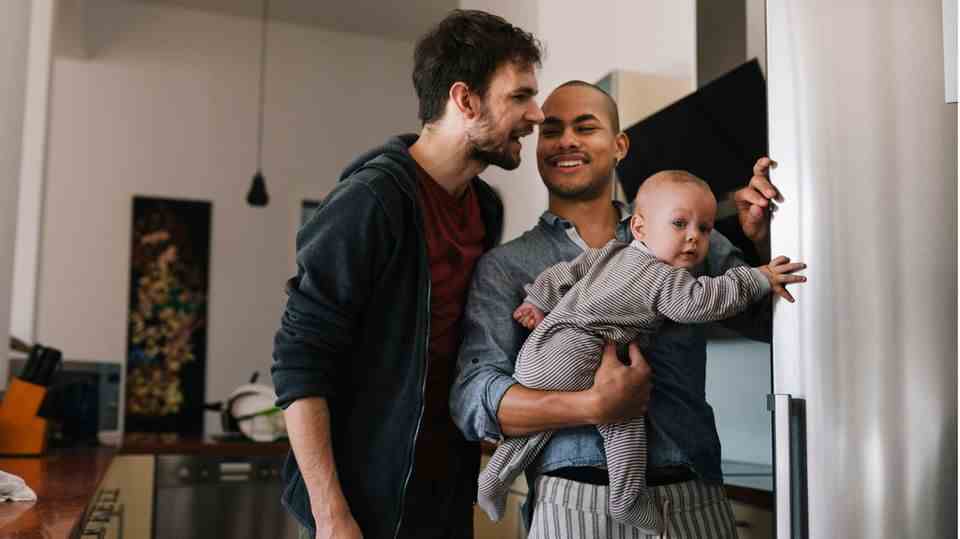
With Spanish and German versions of the training, Booking.com hopes more properties will register for the Travel Proud badge
© Booking.com
This year we are the main sponsor of Amsterdam Pride, which means we want to further promote the certificate and work directly with local accommodation providers. Of course, the “Travel Proud” badge can’t revolutionize the entire travel industry. But the campaign got off to a successful start and we are very proud of it.


